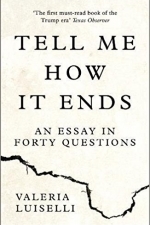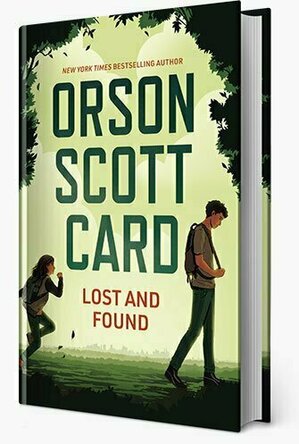Sophia (Bookwyrming Thoughts) (530 KP) rated The Ambrose Beacon (The Solas Prophecy, #1) in Books
Jan 23, 2020
Note: Formatting is lost due to copy and paste, along with pictures and captions
<i><b>Disclaimer:</b> Review copy provided by author for review</i>
Let me blunt about The Ambrose Beacon: it was boring. It also became the third unfortunate book that lands into my DNF list and the first fantasy book oh wait. Not exactly the first... does the Caster Chronicles count as Fantasy, or does it count as Paranormal? If it counts as paranormal, then The Ambrose Beacon became the unfortunate first fantasy book I didn't finish.
So essentially, I give fair warning: I rated and reviewed it based on what I could manage to read so far. Which, I think I was being a bit lenient about, but I didn't throw the book against the wall, so it certainly didn't deserve a lower rating.
Now allow me to tell why I found it boring, and my general thoughts on it:
Larry and Jerry. They sound so similar (they rhyme as well), that I was befuddled and mistakenly read Jerry as Larry and vice-versa when it was really the other way around. They're best friends and one of them is the main character. How confusing can that get?
The characters don't seem to be in depth. While I get the why for Harper and Arianna, the other characters simply seem virtually pancake-like (no offense). Add to the fact that it suddenly switches POVs without some sort of sign. One minute it's Cole, the next? Dinah, Jerry, Harper, Vaughn, etc. >_<
Fairies. Probably one of my favorite things to read about, and it's not because they're sparkly and pretty and whatnot. But I was actually interested in Gouveia's take on fairies when the word was
mentioned in the earliest parts of the book.
Unfortunately, it doesn't seem to be well written, nor realistic. I mean, doing magic in public. In front of human eyewitnesses. That doesn't sound like the typical faery to me that tries to not let the human world find out about them because then it's all, "IT'S THE APOCALYPSE. I must be seeing things," or maybe, "HOLY MONKEYS. FAIRIES EXIST" *rubs eyes to make sure it's not an illusion.* But the fairies here seem like a bounce off of Fantastic Four (even though I haven't watched the movie). More like superheroes than the sidhe.
The same thing is repeated, but in different variations. Oh hooray. Demons, demons and more demons. Same kind of demon, which isn't a problem for me, but the very fact that they tend to be doing the same thing over and over and over again throughout the entire book, which is the main reason why I stopped (I really did stop at exactly 50%). There's not a lot going on, although maybe if I had the time and gave the book further chances, there might be other things going on rather than "OMG, THERE'S A DEMON THAT WANTS MY HEAD ON A PLATTER. RUN." (or in the case here, it's fight to the death.)
Generally I like fantasy. I love the creative worlds and character and creatures made up that gives me a free ticket to travel okay, that applies to any book really without having to move a single inch, and the very fact that you can't exactly buy a plane ticket to the area in the first place. Someone tell me if we can really buy a plane ticket to the Faery Realms if you so disagree on that fact. Of course... I wouldn't exactly try and mess with fairies in the first place.
I tried liking the story. I thought first thought it was because of reading The Jungle, which is dreadfully boring, and it may have influenced my thoughts on this one. Then I read Allegiant for awhile and came back to it. It didn't work out well either (and Allegiant didn't bore me).
So simply put, The Ambrose Beacon is not really my cup of tea.
*eats a biscuit and avoids unsweetened tea*
I really hate giving bad reviews. Especially DNFs.
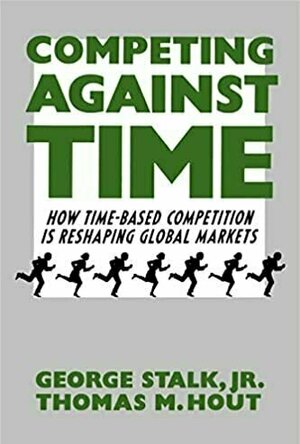
Competing Against Time
Book
Today, time is the cutting edge. In fact, as a strategic weapon, contend George Stalk, Jr., and...
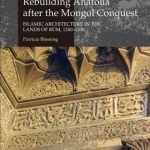
Rebuilding Anatolia After the Mongol Conquest: Islamic Architecture in the Lands of Rum, 1240-1330
Leslie Brubaker, John Haldon, Patricia Blessing and Anthony Bryer
Book
This book is a study of Islamic architecture in Anatolia following the Mongol conquest in 1243....
Modern NMR Approaches to the Structure Elucidation of Natural Products: Volume 2: Data Acquisition and Applications to Compound Classes
Antony Williams, Gary Martin, David Rovnyak and Kirk Gustafson
Book
The Ghanian plant Cryptolepis sanguinolenta is the source of a series of fascinating indoloquinoline...
Suswatibasu (1703 KP) rated Tell Me How it Ends: An Essay in Forty Questions in Books
Jan 3, 2018
Based on her experiences working as an interpreter for dozens of Central American child migrants, she speaks to those who risked their lives crossing Mexico to escape their fraught existence back home. To stay in the US, each must be vetted by the Citizenship and Immigration Services, a vast, impersonal bureaucracy. It's her job to help these kids, but in order to do so, they must answer 40 questions that will determine their fate.
The truth about the crossing may be much more brutal in reality, with 80% of women and girls who cross from Mexico to the US being raped, hence some of the children appear evasive when answering questions. But this book is fueled, in no small part, by Luiselli's bottles up shame and rage. She's aghast at the gap between American ideals and the way they actually treat undocumented children, yet her writing is measured and fair-minded.
Luiselli takes us inside the grand dream of migration, offering the valuable reminder that exceedingly few immigrants abandon their past and brave death to come to America for dark or nasty reasons. Fantastic read.
Educational Leadership and Pierre Bourdieu
Book
Pierre Bourdieu was one of the most important thinkers of the twentieth century. He argued for, and...
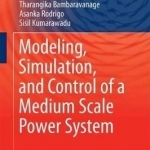
Modeling, Simulation, and Control of a Medium Scale Power System: 2017
Book
This book highlights the most important aspects of mathematical modeling, computer simulation, and...
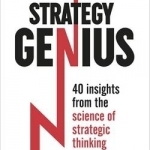
Strategy Genius: 40 Insights from the Science of Strategic Thinking
Book
The fast-track MBA in strategy Imagine having instant access to the world's smartest thinking on...
TacoDave (3973 KP) rated Lost and Found in Books
Oct 3, 2019
The main character, Ezekiel, can touch something that is lost and sense who and where the owner is. A lost toy on the ground might call out to him, asking to be returned to its five-year-old owner. Or a lost shoe might give him the impulse to track down a businessman. The power sounds useful, but since everyone assumes he is a thief (how else would he know where these items belong?), it is more of a burden than a blessing.
Everything changes when a police officer asks Ezekiel to help find a missing child. Could his "power" actually be useful? Or is it impossible to find a person who is "lost?" That's the main story of the book, and it is an intriguing concept, especially when Ezekiel meets other people with odd micropowers.
After saying all of that, how is the book? It's good! It isn't quite as engaging as some of Card's other books, but only because it is smaller in scale and scope. The Ender saga (which is up to approximately 12 books by now) feels important. The themes, moral dilemmas, and human interactions all have weight to them because of how epic the story is.
"Lost and Found" has a bit of adventure and danger, but it is much more grounded. It is focused on (almost) regular humans living their lives in contemporary times. So it is a touch lighter, a touch simpler than some of Card's other books.
Having said that, I thoroughly enjoyed the book from beginning to end and would love to find out more about micropowers and just how inane they might be. The world-building is good enough to make me crave more.
One last note: the micropowers discussed actually *do* relate to the Ender saga, because they seem to be based (intentionally or not) on philotic rays. The main character can "feel" a connection between lost items and their owners. Another character can "feel" where spiders are. And one can "feel" other peoples' navels. It instantly reminded me of the ansible, the hive queen, and philotic webs. So that's something.
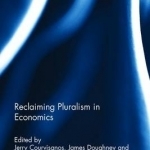
Reclaiming Pluralism in Economics
Jerry Courvisanos, James Doughney and Alex Millmow
Book
Until the end of the early 1970s, from a history of economic thought perspective, the mainstream in...

